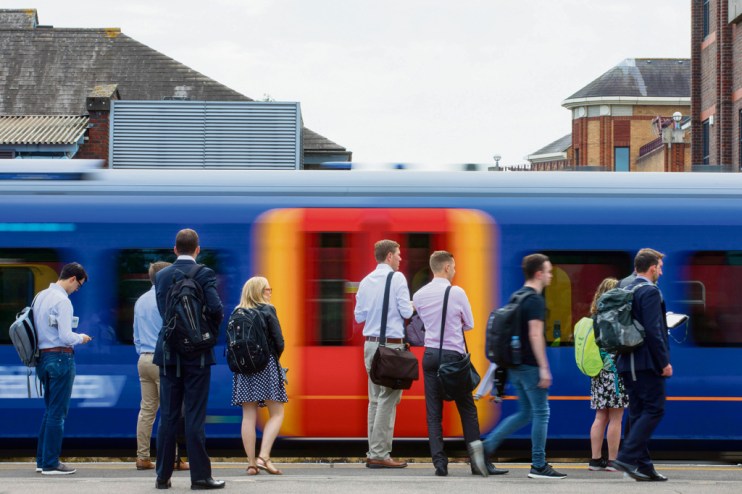Not there yet: Rail numbers lag behind, reaching 62 per cent of pre-Covid levels

Rail travel continues to lag behind, as passenger journeys made in the last quarter amounted to 62.1 per cent of 2019 levels.
According to a report published today by the Office of Rail and Road (ORR), a total of 275 million journeys were made between January and March – three times more than 2020 levels but still 37.9 per cent down on the 443 million registered pre-Covid.
Figures for the year ended 31 March reported an overall increase, with rail journeys going up to 990m – 43 per cent below the 1.7bn trips made two years ago.
The impact of fewer passengers reverberated on revenues, as the £5.9bn made over the past year represent only 54 per cent of the £11bn gained in 2019.
The data came out as parties continue to shift the blame for next week’s rail strikes, which are set to be the biggest since 1989.
40,000 members of the RMT union are to walk out on 21, 23 and 25 June over job cuts and salaries.
RMT workers will be joined by members of the train driver union Aslef, who will strike on 23 and 26 June, while the TSSA union announced it was balloting 6,000 of its members on strike action.
Railway workers cited Network Rail’s decision to axe 2,500 jobs as one of the main reasons behind the walk out.
The government-owned operator said it was forced to rethink its business as it could no longer depend on government funding to stay afloat.
Transport minister Grant Shapps told MPs yesterday the railway system needed a new direction, after it lost 20 per cent of passengers and revenue.
“We protected the railway with £16bn during the pandemic … not a single railway worker lost their jobs or were furloughed,” he said in Parliament. “This level of subsidy cannot continue forever.”
The secretary repeated numerous times over the last few weeks that the strikes would only push people further away, eventually pulling the plug on an industry already on “life support.”
Shapps’s remarks echoed those made in January by industry sources, who said maintaining the industry was “unsustainable from the Treasury point of view and the taxpayer point of view.”
“We have to strike a balance between running a service with a frequency attractive to passengers, which makes people want to get back on the train and doesn’t constrict the economy, while not being profligate with taxpayers’ money,” sources told the Sunday Times at the end of January.